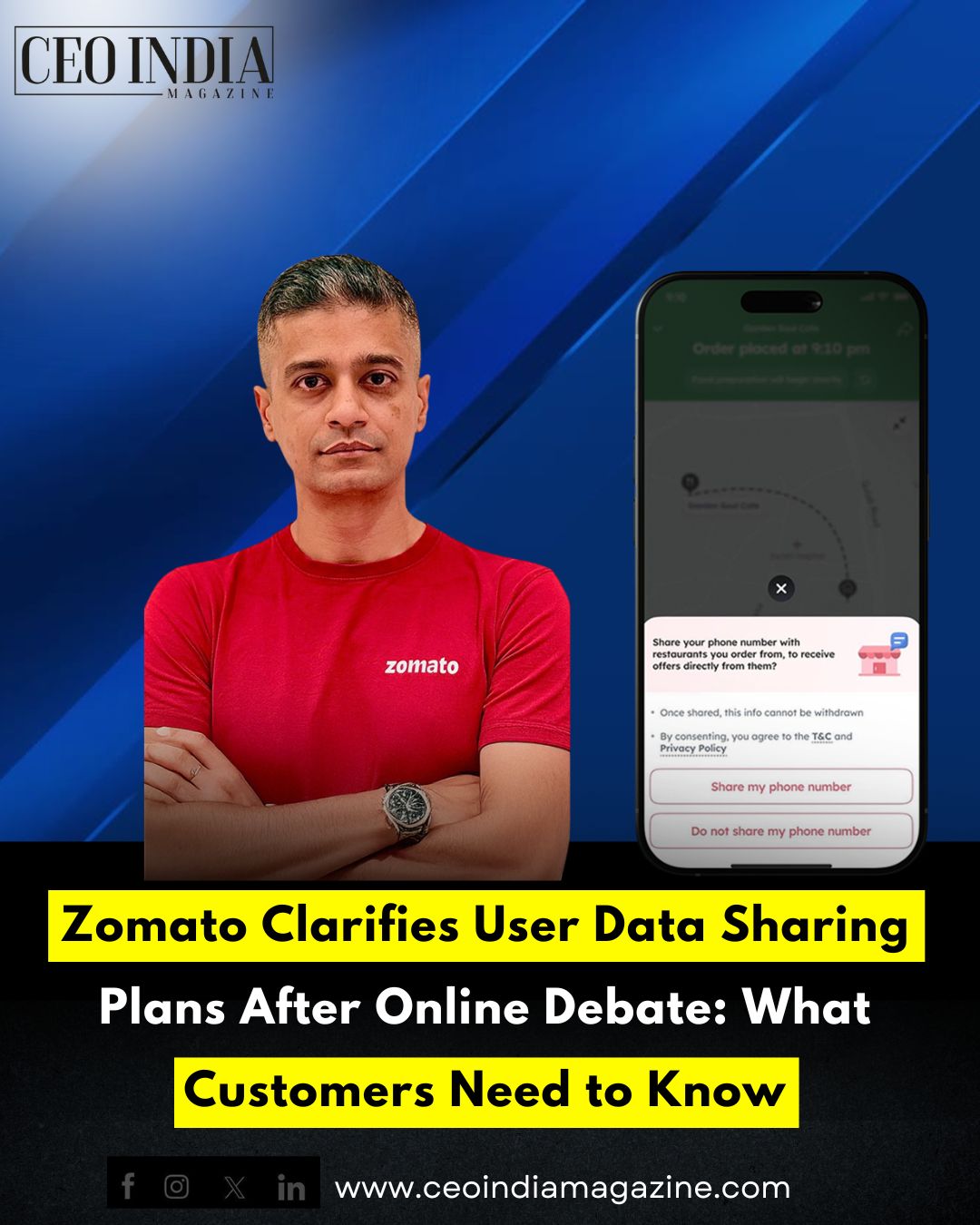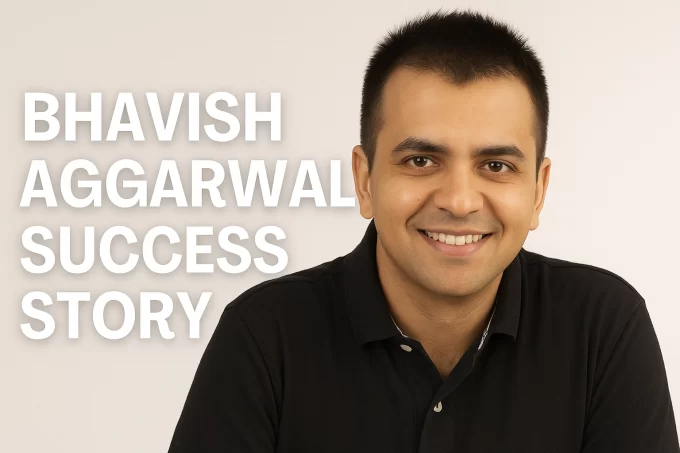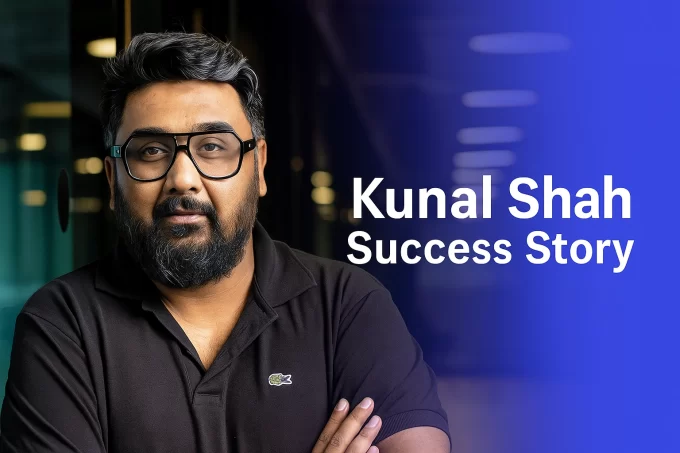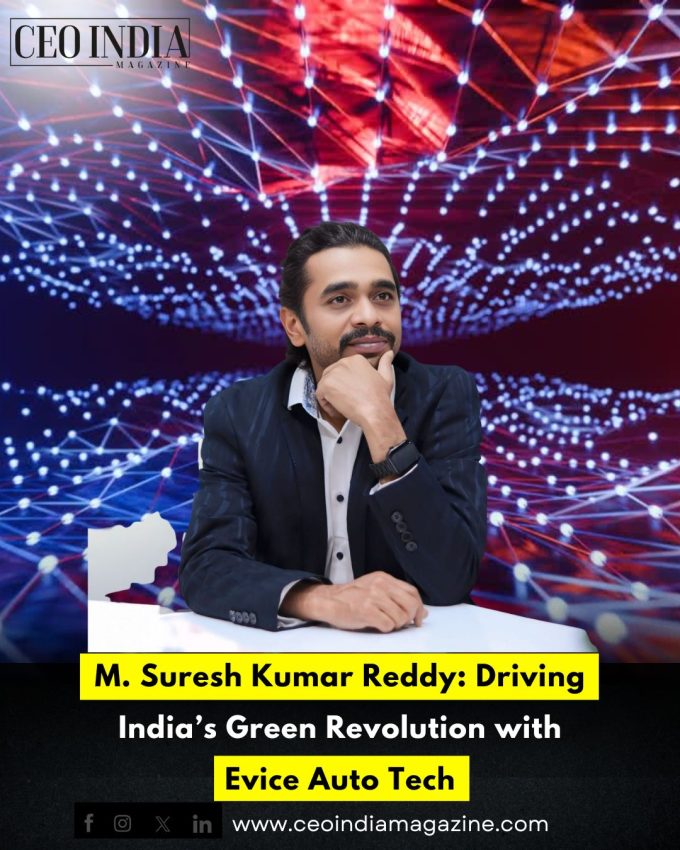A recent news report about Zomato’s alleged plans to share user data with restaurants sparked widespread debate on social media, raising concerns over privacy and data protection. In response, Aditya Mangla, CEO of Eternal’s food delivery business at Zomato, issued a clear clarification to address the growing speculation. According to Mangla, the reported data-sharing plan is linked to a new in-app feature that is still in its early stages of development — and most importantly, it will be strictly opt-in for customers.
Mangla took to LinkedIn to explain that the feature is designed to allow users to voluntarily choose whether they want to receive marketing and promotional updates directly from the restaurants they order from. He emphasized that Zomato will not automatically share any user information without explicit consent. “If and when consent is provided, only phone numbers will be shared with the restaurants. No other information will be shared. There’s nothing sneaky or automatic about it,” he wrote, putting to rest fears of unsolicited data transfer.
The clarification came hours after an ET report claimed that Zomato was in the final stages of discussions with the National Restaurants Association of India (NRAI) regarding potential customer data access for restaurant partners. The report also stated that Swiggy, Zomato’s key competitor, was considering similar data-sharing measures. This stirred concern among users who interpreted the development as a possible shift toward exposing sensitive customer information.
However, Mangla’s statement highlights that the initiative is far from being a blanket data-sharing model. Instead, it is positioned as a customer-driven feature aimed at improving restaurant-customer engagement. By choosing to opt in, users can receive updates about new menu items, special promotions, loyalty benefits, and other offers directly from their frequently ordered restaurants — creating a more personalized dining experience.
Customer data has long been a contentious issue between food delivery platforms and restaurant partners. Many restaurants have argued that gaining access to basic customer information helps them build direct relationships and reduce dependency on aggregators. On the other hand, users often prefer the privacy and convenience offered by food delivery apps without worrying about unwanted promotional messages.
Zomato’s upcoming feature appears to strike a balance by maintaining user privacy while offering restaurants a controlled way to connect with willing customers. Transparency around user consent and minimal data sharing — limited only to phone numbers — demonstrates an attempt to address both restaurant demands and customer concerns.
As Zomato continues to refine the feature, users can expect clearer options within the app that allow them to choose how and with whom their information is shared. For now, Mangla’s clarification aims to reassure customers that their privacy remains a priority and that no automatic data sharing will take place.
This development also signals a broader industry trend where food delivery platforms may explore new ways to support restaurant partners while ensuring strict data protection standards.










Leave a comment